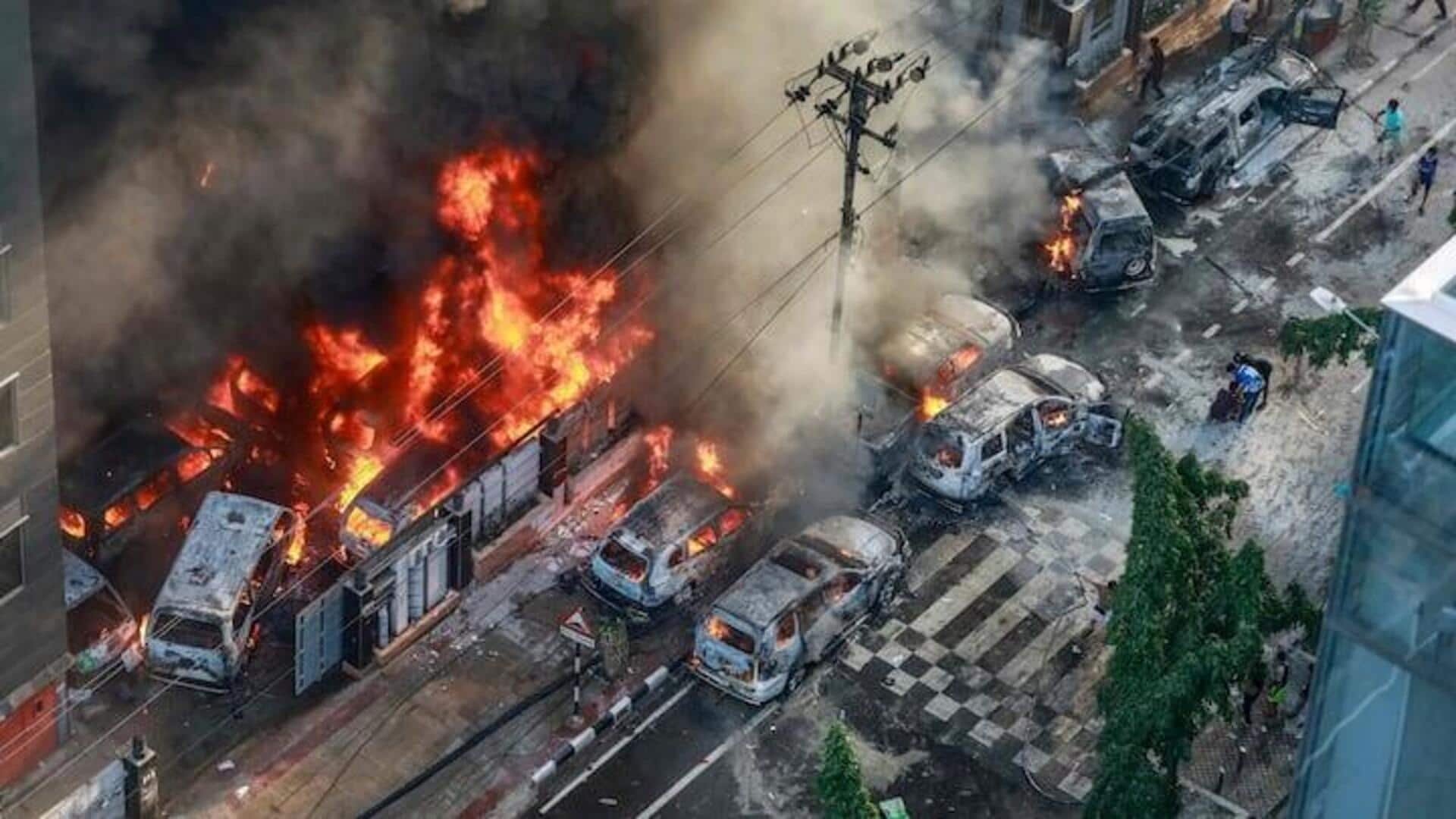
Over 300 Indians return as Bangladesh quota protests turn deadly
What's the story
Over 300 Indian students studying in Bangladesh have returned home due to escalating protests against the reintroduction of reservation in government jobs. The protests, which have been ongoing for three weeks, have resulted in over 100 deaths as students clashed with security forces and pro-government activists. The situation significantly worsened on Monday when violence erupted at Dhaka University, leading to six deaths and prompting a nationwide university shutdown.
Context
Why does this story matter?
Cities across Bangladesh have been rocked by violent protests since last month. The unrest was triggered by the government's decision to reserve up to 30% of government jobs for relatives of veterans from the country's 1971 war of independence against Pakistan. This quota system was abolished in 2018 but was reinstated last month by a court order declaring its abolition illegal. Last week, the Supreme Court suspended the high court's order for four weeks, but the student protests continued.
Evacuation routes
Students navigate key routes to return home
The majority of the returning students were pursuing MBBS degrees and hail from Uttar Pradesh, Haryana, Meghalaya, and Jammu and Kashmir. They used key routes, such as the international land port at Akhurah near Agartala in Tripura and the international land port at Dawki in Meghalaya, to return home. The decision to leave was triggered by a near-total internet shutdown on Thursday and severe disruption to telephone services, effectively isolating them from their families.
Government intervention
Indian government facilitates safe return amidst crisis
People familiar with the matter said that the border crossings at Gede-Darshana, Benapole-Petrapole, and Akhaura-Agartala will remain open for Indian nationals leaving Bangladesh. Ministry of External Affairs (MEA) spokesperson Randhir Jaiswal stated that External Affairs Minister S Jaishankar was personally overseeing the safety of Indians in Bangladesh. There are an estimated 15,000 Indians in Bangladesh, including 8,500 students.
Disruptions
Nationwide curfew imposed
A nationwide curfew has been imposed in Bangladesh after the police failed to contain the days of unrest in the country. The government, led by Prime Minister Sheikh Hasina, announced the decision following an attack on the Narsingdi prison in central Bangladesh, which resulted in the release of several detainees, according to the BBC. The army would be deployed to the streets to restore order, government Press Secretary Naeemul Islam Khan said.